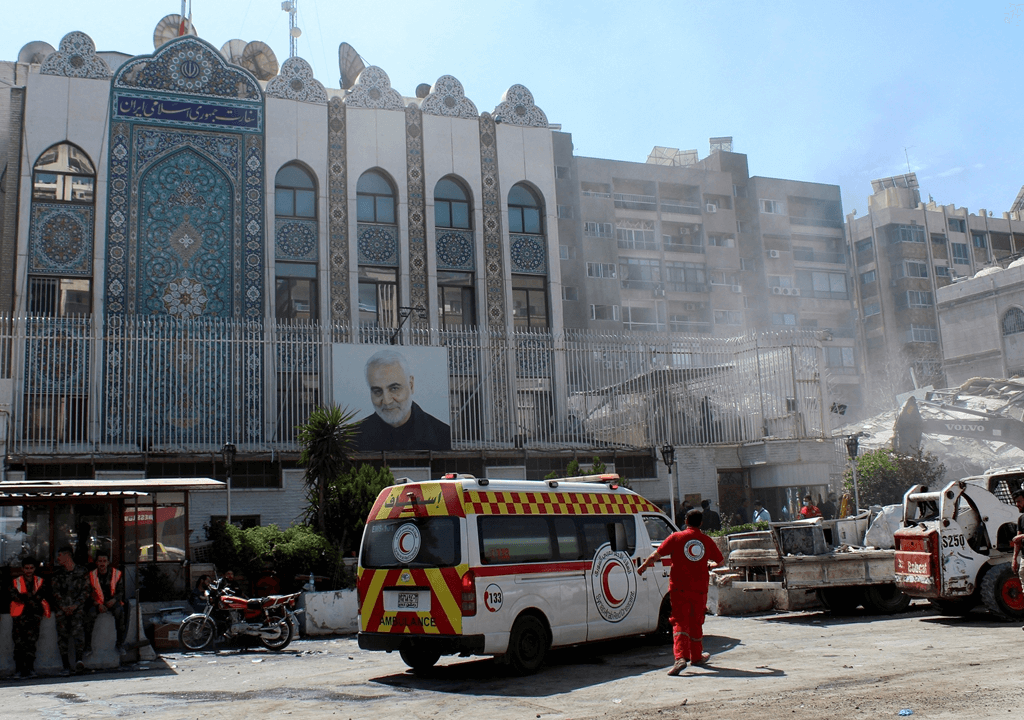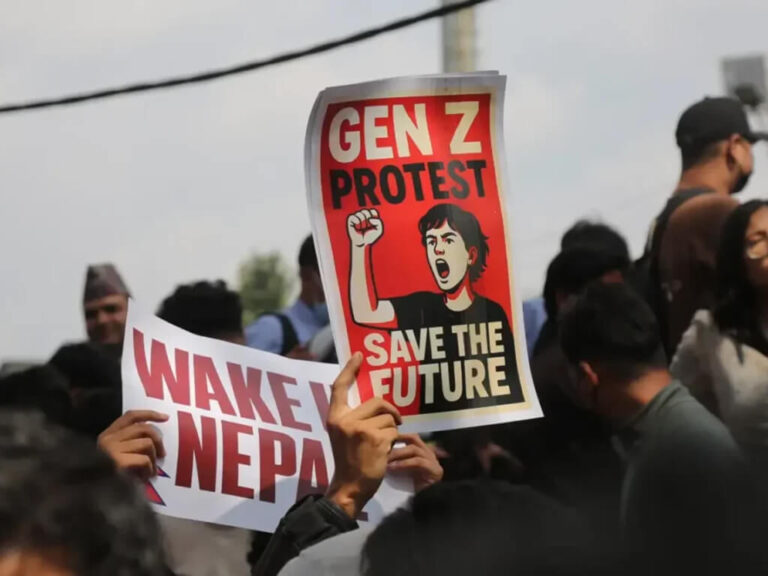The recent phase of the Israel-Hamas conflict began with Hamas’s attack on Israeli civilians, sparking an ongoing cycle of violence. With the death toll now exceeding 30,000, tensions between Israel and Hamas, essentially a proxy conflict involving Iran, have reached a critical point. Targeting Hezbollah and the Iranian Revolutionary Guard Corps, two major supporters of Hamas, Israel has escalated its military activities in Syria. The reported Israeli airstrike on Iran’s embassy in Syria, which claimed the lives of senior commanders among its casualties, is a noteworthy show. On this occasion, There is concern that if Iran bypasses intermediaries like Hezbollah and Hamas, it may resort to direct warfare, potentially involving Syria and Lebanon in a wider conflict.
Israel has a history of targeting Iran’s military installations and its proxies in Syria, but the recent attack on the consulate marked the first direct strike on Iran’s expansive embassy compound. Since Egypt’s peace agreement with Israel, Iran has emerged as a leading voice among Islamic communities seeking retribution against Israel. Many Muslims worldwide perceive Iran as the foremost advocate for Muslim solidarity and retaliation against Israel. While tensions have been high, direct warfare between the two nations has been avoided in recent years. However, the latest incident has raised concerns about the potential for Iran to enter the conflict directly.
Observers note that the Israel-Hamas conflict is transcending local boundaries, with Israel conducting operations into Lebanon and Syria to target Hezbollah, an organization linked to Hamas. Additionally, there have been renewed attacks by Iranian-backed militias on U.S. and Israeli targets in Iraq. Recent Israeli strikes in Syria have resulted in significant casualties among Syrian forces and Hezbollah, marking the highest death toll since the Israel-Hamas conflict began in October.
Tehran has vowed a strong response to the consulate attack. Earlier reports from Iran’s ambassador to Syria, Hossein Akbari, indicated that five to seven individuals, including diplomats, tragically lost their lives. The Islamic Revolutionary Guard Corps confirmed the deaths of seven Iranian military advisors, including senior commander Mohammad Reza Zahedi, from its elite Quds Force. Israel typically refrains from commenting on its military actions in Syria, but The New York Times reported that four unnamed Israeli officials acknowledged Israel’s responsibility for the attack.
Iran’s U.N. mission swiftly condemned the strike on their embassy, denouncing it as a “Flagrant Violation” of international law and the U.N. Charter. They stressed the threat it poses to regional peace and called for condemnation from the U.N. Security Council, asserting Iran’s right to respond decisively. Hezbollah echoed this sentiment, promising retaliation against the perpetrators.
A number of Muslim countries denounced the incident, including Saudi Arabia, the United Arab Emirates, Iraq, Jordan, Oman, Pakistan, Qatar, and even Russia. Though it raised concerns about rising tensions, the U.S. state Department did not expect this to have an impact on negotiations to release Israeli captives held by Hamas.
The UN expressed deep concern but deferred comprehensive remarks for later. Ali Vaez, a senior adviser at the International Crisis Group, noted the significance of the strike in targeting both individuals and the location.
Israel typically refrains from commenting on its targeted assassination strikes, although Iranian media openly acknowledged the loss of high-ranking figures. Last year, Israel targeted Sayed Reza Musawi, the IGRC head of logistics in the Levant, among others. In the recent strike, Brig Gen Mohammad Reza Zahedi and his deputy, Gen Haji Rahimi, were killed, along with Brig Gen Hossein Amirollah, the chief of general staff for the al-Quds force in Syria and Lebanon.
Iran has pledged retaliation following Israeli airstrikes that demolished the Iranian consulate in Damascus, resulting in the deaths of at least 11 people. However, the likelihood of a full-scale war between Iran and Israel remains low at present. While both nations have been involved in numerous conflicts in the past, they currently appear to prefer targeted strikes over outright warfare. Some experts speculate that Israel may expand its operations to Lebanon, Syria, and possibly Yemen, but a direct conflict with Iran appears improbable. Iran is unlikely to deploy troops to Lebanon or Syria, as both countries are suffering by Israel. Consequently, the conflict is expected to persist as a proxy war characterized by targeted killings.








